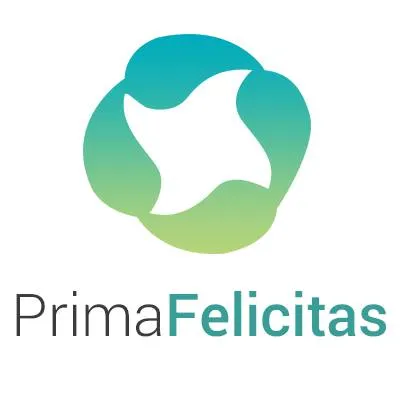Segments of the music industry are embracing the global Metaverse trend in search of opportunities for expansion, collaboration, revenue generation, and artistic innovation. A few recent projects, such as Fortnite’s Ariana Grande concert, UMG’s launch of the new “NFT supergroup”, and HYBE’s diversification beyond music, showed what music can do within the Metaverse world.
There are several social media platforms, which are entirely dedicated to sharing music, and those that aren’t have incorporated music in other ways. In addition to raising awareness about music licensing online, this has also highlighted the need to update outdated systems to keep up with technology’s rapid advancements.
The Metaverse: What Exactly Is It?
Metaverse refers to a virtual shared world that is developed by the intersection of physical and virtual reality. Here, users can communicate with each other using a computer-generated environment in real-time. It is a concept that is still evolving and is often associated with immersive technologies such as virtual reality, augmented reality, and 3D environments.
Current Challenges Emerging In Licensing
In the Web3 domain, technology is progressing rapidly, and since everything is new, numerous issues must be resolved. Currently, the Metaverse is in the new exploratory and testing stage. Hence, if someone fails, it will become a lesson for others.
Although there has been considerable investigation in the Metaverse, the development of licensing has yet to keep pace. For Web2 platforms, there are standards on licensing, such as what can and can’t be performed. However, this doesn’t exist in Metaverse currently. The set of laws and standards for licensing and copyright aren’t as substantial as required for a trustworthy licensing landscape.
In the Metaverse, licensing music is vastly different from traditional music licensing. The critical difference includes that the Metaverse music license requires adding Metaverse as the distribution channel listed within the scope of the license, or the license’s scope should be so broad that Metaverse would be included by default.
Here are some of the current challenges emerging in licensing in the Metaverse:
- Intellectual Property Rights: With the Metaverse being a virtual space where users can create and sell their own content, it is crucial to ensure that intellectual property rights are protected. However, enforcing IP rights in the Metaverse can be challenging, as it is difficult to track and identify infringing content. This has led to questions about who owns the content created in the Metaverse and who should be responsible for enforcing IP rights.
- Cross-platform Compatibility: As the Metaverse expands, it is likely that there will be multiple platforms or ecosystems that will be interconnected. This will make it more difficult to ensure that licensing agreements are consistent across all platforms, and it may lead to disputes about who owns the rights to certain content.
- Content Moderation: One of the key challenges in the Metaverse is content moderation. With millions of users creating content, monitoring everything and ensuring that it complies with licensing agreements is difficult. This is incredibly challenging given that the Metaverse is a global space, and different countries may have different laws and regulations around content moderation.
- Licensing Agreements: Licensing agreements are often complex and difficult to understand. This can make it challenging for users to know what they can and cannot do with the content they create in the Metaverse. There is also a risk that licensing agreements may be unfair to users, leading to disputes and legal challenges.
- Emerging Technologies: The Metaverse is still in its early stages, and as new technologies emerge, it may be challenging to ensure that licensing agreements are up-to-date and cover all emerging technologies. This may require ongoing negotiations and updates to licensing agreements to ensure they are comprehensive and effective.
Revolutionary Approaches to Licensing within the Metaverse
Founder of Media Industry Licensing Content, who uses blockchain technology to license content, Hendrik Hey believes a new licensing model is on the horizon.
Hendrik Hey said that a user-friendly platform is under development, which will enable musicians to input their licensing details. To license music in the metaverse, blockchain technology is employed wherein an expert user creates a hash containing all relevant licensing information. Following that, the assets that require licensing can be located in the Metaverse world.
The blockchain hash is generally safe and transparent, though not completely theft-proof. However, they can significantly simplify the licensing process. The automatically generated blockchain hash can be used to prove the validity of the license’s information. In the case of a legal disagreement, the blockchain can identify the actual owner, proving that you are the legitimate owner of the license and that the information is authentic.
The metaverse has an exciting future from an artistic and developmental perspective, with enormous success possibilities and substantial financial rewards for content producers. For example, Spottie Wifi made $192,000 in under 60 seconds when he sold his music as an NFT compilation. The middlemen were eliminated, and the money went straight to his wallet.
Hence, Metaverse can become mainstream with people, such as Hey developing the space and Spottie Wifi experimenting in it.
Final Takeaway
Metaverse is emerging as a new digital space for musical artists, where they can build an immersive experience of music using their avatars. Distinct kinds of metaverses exist, such as blockchain-based, gaming based, etc. A few metaverses are entirely dependent on Virtual Reality (VR) technologies and need a VR headset to immerse in the digital virtual space.
There have been many potential applications of Metaverse and blockchain technologies in the recording and licensing music industry. One of the most relevant use cases is the development of the networked database of copyright ownership that would assist in resolving problems with music licensing. To own products using ownership rights and advantages from royalty distribution has become the biggest challenge in today’s music industry. Metaverse and blockchain can provide ownership rights needed to monetize digital music products.
Looking for help here?
Connect with Our Expert for a detailed discussion
Post Views: 22
